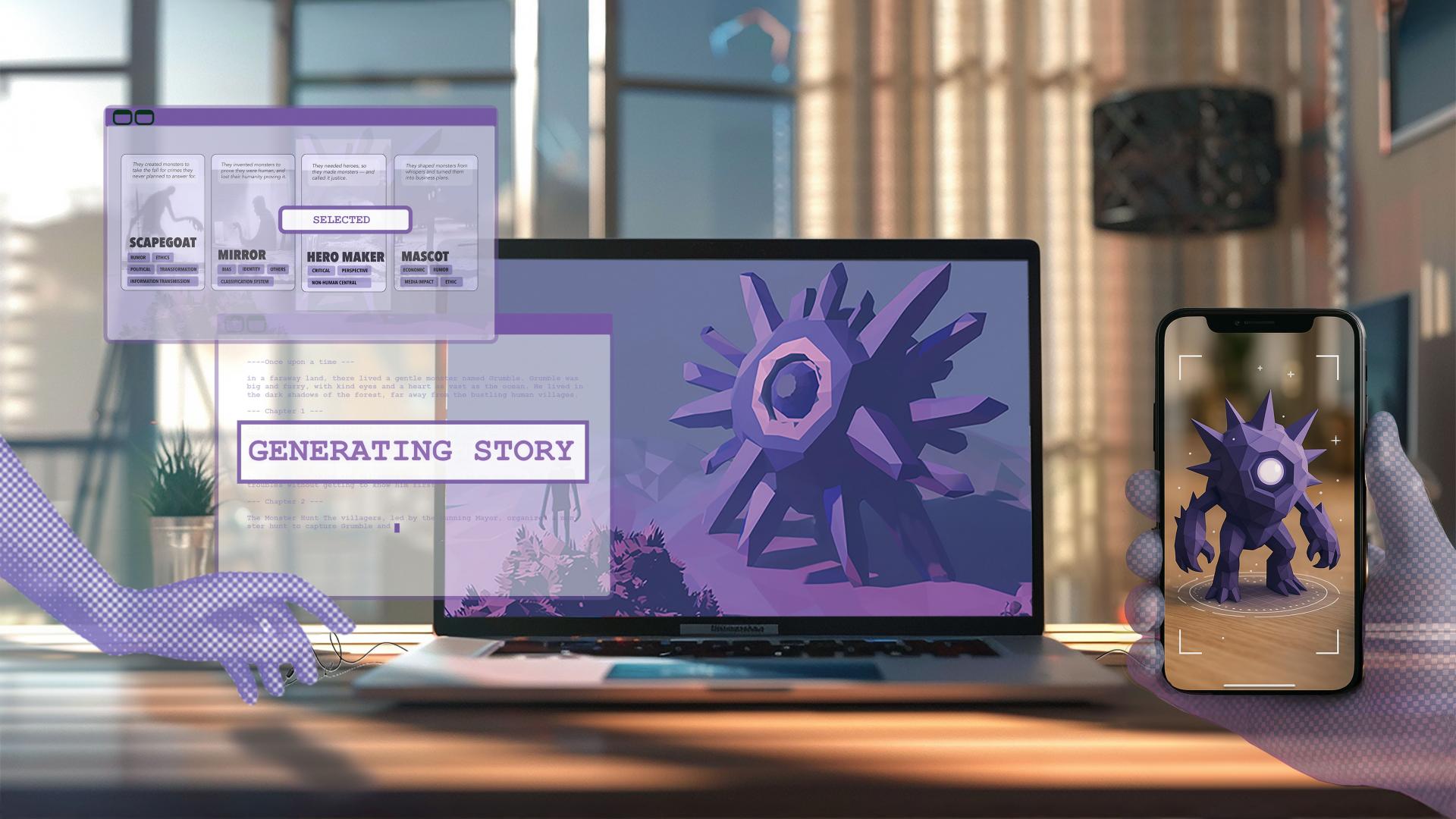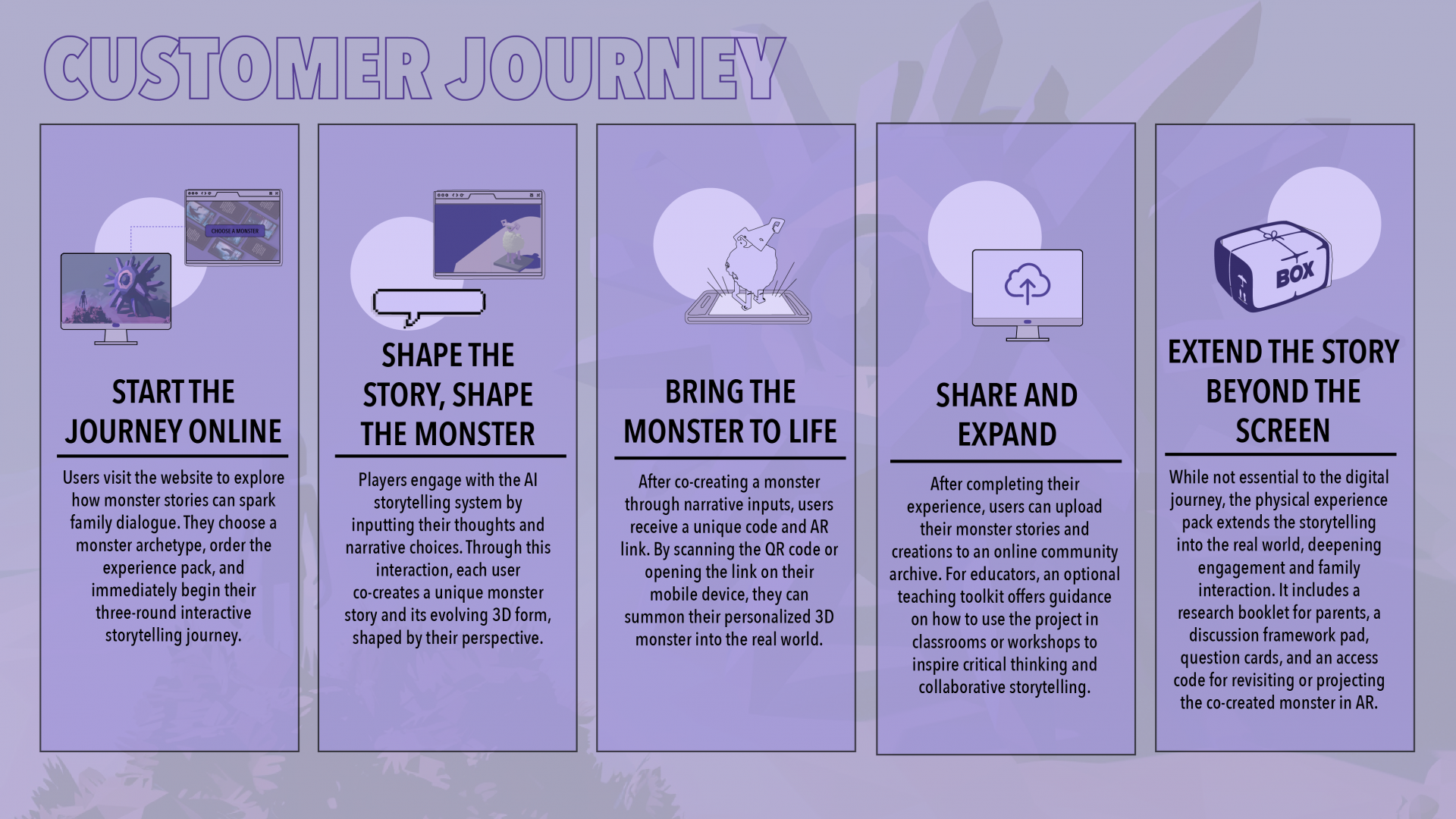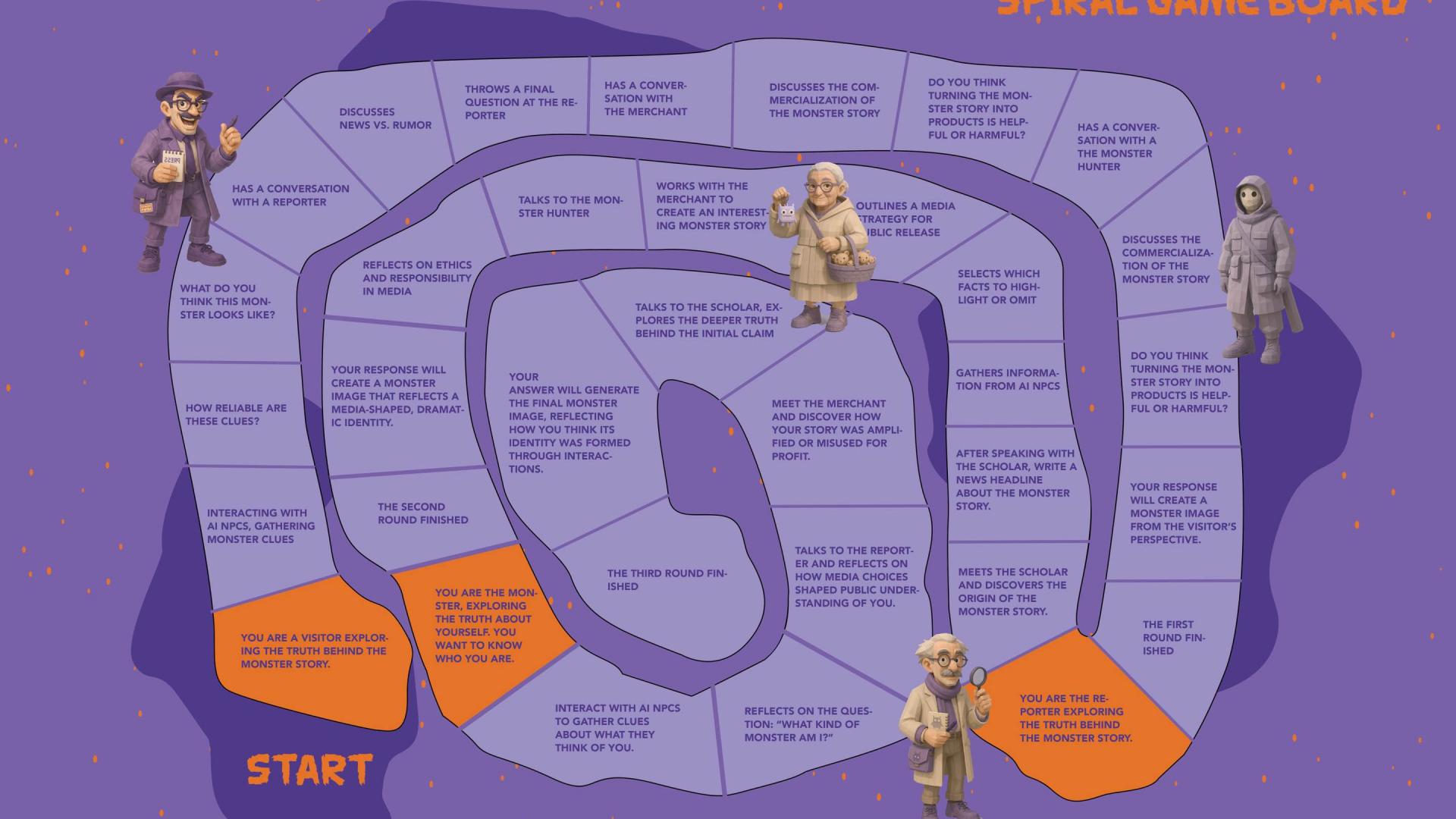Monster Narratives
The narrative of this project is grounded in research on how monsters are created and why humans need monster narrative. It unfolds through four distinct storylines, each centered on a specific type of monster:
Scapegoat: monsters invented to cover up wrongdoing
Mirror: monsters used to define and reinforce what is considered “human” Mascot: monsters exploited for economic or symbolic value
Hero Maker: monsters that exist to produce heroes
Each storyline corresponds to critical social themes such as rumor-making, discrimination and hierarchy, media manipulation, and post-human perspectives.
In this exhibition, the Mascot narrative is featured, exploring how media manipulation operates within the commercialization of monsters. The aim is to make these abstract ideas approachable and discussable, especially for younger audiences. Visitors are invited to shape the story by letting the “monster” speak, revealing the hidden truths we often disguise through fantasy.
AI narrative authoring approach
The narrative is generated by a tailored Large Language Model, and the authoring process applies Orchid, an authoring approach developed by Zhen Wu and her research teammates, Serkan Kumyol, Shing Yin Wong, and Prof. Tristan Braud from the Division of Integrative Systems and Design at HKUST.
The authoring approach focuses on three aspects:
1. Story graph: The overall narrative structure, organizing the relationship between different narrative nodes and their sequences that guide the narrative's development.
2. In-nodes LLM generation rules for each narrative stage (node), including world settings, characters, player interactions, and narrator behaviors.
3. The conditions for switching between two adjacent nodes.
Scaffolded by the tool, these elements are integrated into the LLM-driven narrative algorithm, guiding it to generate dynamic narratives based on the player's input.
See related research publication: Orchid: A Creative Approach for Authoring LLM-Driven Interactive Narratives, in C&C '25: https://dl.acm.org/doi/10.1145/3698061.3726906
Experience Flow
In this experience, players first interact online with an AI narrative system that generates unique monster stories and corresponding AR monster images. After selecting a theme, they are guided through a co-creative storytelling process with the AI, reflecting on social dynamics, power structures, and media influence.
Afterward, players receive a physical package that extends their digital experience into the real world. The package includes a research booklet, a game board corresponding to the chosen storyline, character cards, a personalized storybook generated online, and 3D monster figures. These elements invite families to continue exploring and playing with their own monster narrative in a tangible and imaginative way.
 Free wifi available
Free wifi available
 Toilets available
Toilets available
 Fully wheelchair accessible
Fully wheelchair accessible
 Wheelchair friendly toilet available
Wheelchair friendly toilet available



